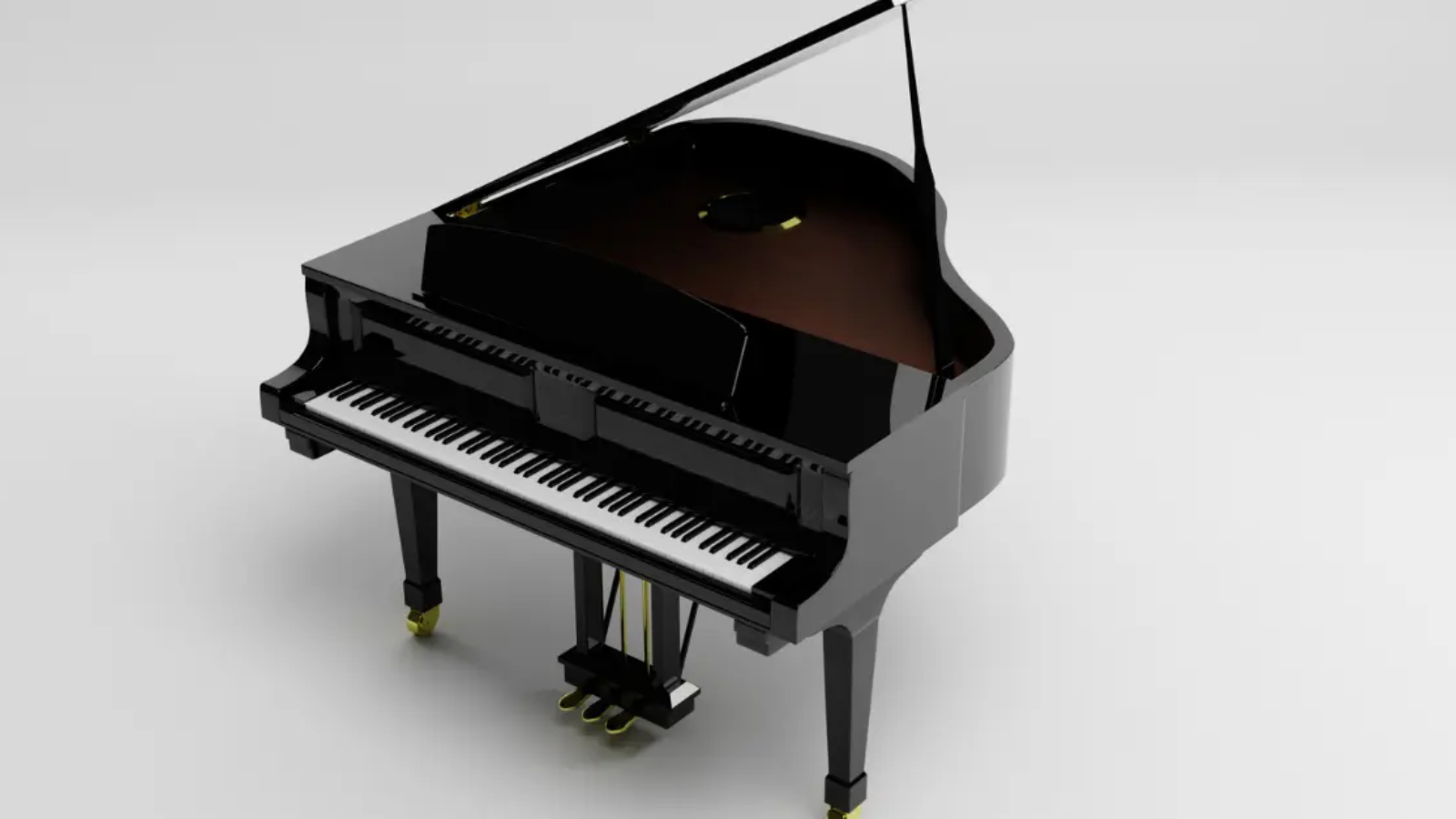Discover why a piano is the ultimate piano investment for kids and the key to their future success.

Every parent dreams of giving their child the best tools for success, creativity, and happiness. In this pursuit, many overlook one of the most powerful and enriching investments they can make: choosing a piano. More than just a musical instrument, the piano opens doors to a world of discipline, emotional intelligence, cognitive growth, and lifelong joy. Whether your child dreams of becoming a musician or simply needs a creative outlet, choosing a piano can be the best investment for your child’s future.
Benefits of Learning Piano at an Early Age
1. Enhances Cognitive Skills
Children who play the piano activate multiple areas of the brain simultaneously. Studies show early musical training improves memory, spatial reasoning, and mathematical ability. These brain-boosting effects translate into better academic performance and problem-solving skills in everyday life.
2. Improves Concentration and Discipline
Learning piano requires focus and regular practice. Children gradually develop patience, attention to detail, and the discipline to stick with goals. This habit of perseverance naturally spills over into schoolwork and other areas of life.
3. Boosts Emotional Intelligence
Piano playing encourages emotional expression and sensitivity. Through melodies and rhythms, kids learn to communicate feelings without words. It also builds empathy by connecting them with the emotions behind music from various cultures and time periods.
4. Strengthens Hand-Eye Coordination
The piano demands synchronization of both hands while reading sheet music. This significantly enhances hand-eye coordination and motor skills, especially beneficial during a child’s developmental years.
5. Builds Confidence Through Achievement
Every song learned and performed is a milestone. Children experience pride in their progress and develop a strong sense of self-confidence. Performing in recitals further encourages public speaking skills and overcoming stage fright.
The Long-Term Value of Piano Education
6. A Skill That Lasts a Lifetime
Unlike many childhood hobbies that fade, piano skills stay with children throughout their lives. Even if they don’t pursue music professionally, playing the piano remains a creative outlet they can return to at any age.
7. Professional and Educational Opportunities
Many top schools and universities look favorably upon musical training. Participation in orchestras, competitions, or graded exams can boost college applications and even lead to scholarships.
8. Increases Cultural Appreciation
Learning classical compositions and traditional pieces introduces children to the rich heritage of global music. This builds cultural awareness and an appreciation for the arts.
9. Encourages Independent Learning
As children progress, they begin to explore music independently—learning new pieces, composing their own songs, or even experimenting with different genres. This fosters creativity and self-driven growth.
10. Connects Children Socially
Whether it’s through group classes, band practices, or music events, piano learning offers multiple opportunities for children to interact with peers and build meaningful friendships around shared interests.
Choosing the Right Piano for Your Child
11. Acoustic vs. Digital: What’s Better?
For beginners, a digital piano with weighted keys is often a practical and affordable choice. However, an acoustic piano offers richer sound and better touch response. The decision depends on space, budget, and your child’s commitment level.
12. Size and Setup Matter
Make sure the piano fits comfortably in your home. Invest in an adjustable bench and proper lighting. Creating a cozy, dedicated practice space can significantly enhance your child’s motivation and concentration.
13. Keyboard Quality and Pedals
Ensure the keyboard has full-size, weighted keys and touch sensitivity. If going digital, choose a model with at least 88 keys and functioning sustain pedals to provide a more realistic playing experience.
14. Don’t Forget Headphones
For digital pianos, headphones allow quiet practice sessions—great for shared living spaces or late-night practice.
Getting Started: Lessons and Routine
15. Choose the Right Teacher
A good teacher understands your child’s personality, learning pace, and musical interests. Look for qualified instructors who create an engaging and encouraging environment.
16. Set Realistic Practice Goals
Start with 10-15 minutes of daily practice and increase gradually. Make practice part of your child’s daily routine so it becomes second nature.
17. Make It Fun
Introduce music your child enjoys—movie themes, pop songs, or fun duets. Use apps or games that gamify practice and track progress.
18. Encourage Regular Performances
Even informal performances for family or friends build confidence. Participating in student concerts and music events is an excellent motivator and a memory-making opportunity.
Common Concerns and How to Overcome Them
19. “What if My Child Loses Interest?”
This is common in early stages. Keep things exciting by allowing flexibility in song choice and encouraging exploration. Music should be joyful—not a chore.
20. “Is It Too Expensive?”
Pianos and lessons can be an investment, but there are cost-effective solutions like renting instruments or group lessons. The long-term benefits often far outweigh the initial expense.
21. “Will It Affect Studies?”
In fact, studies show that children involved in music often perform better academically. With proper time management, piano practice can complement—not compete with—schoolwork.
How to Encourage Consistent Progress
22. Reward Small Milestones
Celebrating progress with stickers, certificates, or family recognition keeps motivation high. Create a reward system tailored to your child’s personality.
23. Track Learning with Visual Tools
Use charts or journals to log practice time, pieces mastered, or goals achieved. Visual progress motivates children and keeps parents involved.
24. Explore Music Beyond the Textbook
Introduce online tutorials, fun sheet music, and even YouTube piano covers. Let your child explore different learning sources to find what clicks best.
25. Be a Supportive Listener
Show genuine interest in your child’s piano journey. Attend their performances, listen to their practice, and cheer them on through every challenge.
The Emotional and Academic Return on Investment
26. Boosts Focus and Memory
Numerous studies have linked piano training with improved memory, longer attention span, and better multitasking ability—skills that greatly benefit school and life in general.
27. Creates a Growth Mindset
Piano learning teaches kids that progress comes with effort, patience, and resilience. This mindset prepares them for challenges far beyond the keyboard.
28. Provides a Creative Outlet
Amid academic stress, social pressure, and screen time overload, piano offers a peaceful, screen-free escape that allows kids to express and reset emotionally.
29. Inspires Goal-Oriented Behavior
Setting and achieving musical goals teaches children time management, commitment, and structured thinking—qualities that shape future leaders and achievers.
30. Develops a Lifelong Passion
Many piano students go on to play for personal fulfillment, perform for their communities, or even teach others. It’s a hobby that grows with them and becomes a lifelong companion.
Conclusion
Choosing a piano can be the best investment for your child’s future—not just musically, but academically, emotionally, and socially. From sharpening the mind to soothing the soul, the piano offers unmatched developmental advantages that no gadget or subscription box can rival. Whether your child becomes a concert pianist or simply finds joy in playing a favorite tune, you’re gifting them something truly valuable: a skill, a passion, and a powerful tool for success. So if you’re wondering what’s the best investment for your child’s future—let it begin with a piano.
At NMS Musicals, we offer a comprehensive range of musical instruments, including percussion, string, wind, and keyboard instruments. Our services encompass sales, expert servicing, and the manufacture of leather instruments. Explore our diverse collection and find the perfect instrument to suit your musical needs.
Visit our website to browse our offerings: nmsmusicals.in
For a closer look at our products, check out our shop page: nmsmusicals.in/shop
Stay connected with us through our social media channels:
- Facebook: https://www.facebook.com/nmsmusicalinstruments/
- Instagram: https://www.instagram.com/nmsmusicals/?hl=en
- YouTube: youtube.com/@nmsmusicals
Our shop locations are:
- Puducherry: 149, Perumal Koil Street, Heritage Town, Puducherry, 605001.
Map Link: https://maps.app.goo.gl/ejDwBBFEJmd3szxk7 - Chennai: No: 1, 1st Floor, Kandigai Street, TVS Nagar, Korattur, Chennai – 600076.
Map Link: https://maps.app.goo.gl/7oXmB6X7KQsqeuuw9
For inquiries, contact/Whatsapp us at 9500663895 or email us at laxman.m89@gmail.com.
Discover the world of musical instruments with NMS Musicals today!
For a visual overview of our percussion instruments, watch the following video:


 Cart is empty
Cart is empty 
Leave A Comment
You must be logged in to post a comment